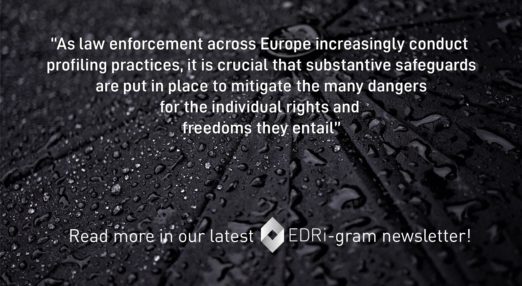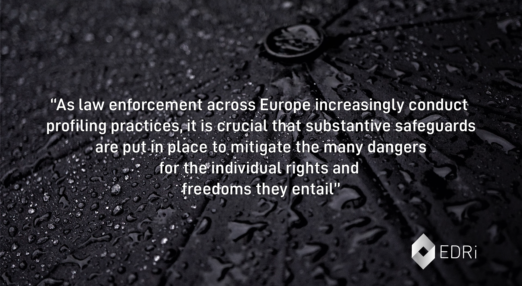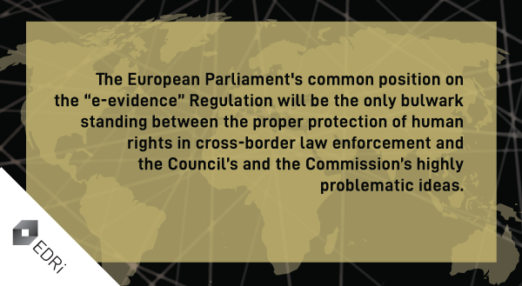Our work
EDRi is the biggest European network defending rights and freedoms online. We work to to challenge private and state actors who abuse their power to control or manipulate the public. We do so by advocating for robust and enforced laws, informing and mobilising people, promoting a healthy and accountable technology market, and building a movement of organisations and individuals committed to digital rights and freedoms in a connected world.
Filter resources
-

EDRi calls for fundamental rights-based responses to COVID-19
Some of the actions taken by governments and businesses under exceptional Coronavirus circumstances today, can have significant repercussions on freedom of expression, privacy and other human rights both today and tomorrow.
Read more
-

Terrorist Content Online Regulation: Time to get things right
Closed-door negotiations (“trilogues”) on the Regulation to prevent the dissemination of terrorist content continue in Brussels. After our open letter from December things have moved on fairly slowly at first, but, recently, new texts are quickly being discussed in order to try to reach an agreement soon. Nonetheless, according to MEP Patrick Breyer, many key issues remain open for discussion.
Read more
-

EDRi-gram 18.5, 11 March 2020
"As law enforcement across Europe increasingly conduct profiling practices, it is crucial that substantive safeguards are put in place to mitigate the many dangers for the individual rights and freedoms they entail"
Read more
-

Stuck under a cloud of suspicion: Profiling in the EU
As facial recognition technologies are gradually rolled out in police departments across Europe, anti-racism groups blow the whistle on the discriminatory over-policing of racialised communities linked to the increasing use of new technologies by law enforcement agents.
Read more
-

Who should decide what we see online?
Online platforms rank and moderate content without letting us know how and why they do it. There is a pressing need for transparency of the practices and policies of these online platforms.
Read more
-

Facebook starts to increase transparency in political ads in the Balkans
Facebook has announced that it will expand its transparency system and confirmation of authenticity of ads about elections and politics starting from mid-March. Namely, Facebook will cover 32 additional countries, including Serbia and North Macedonia where the elections are to take place very soon.
Read more
-

Germany: Invading refugees’ phones – security or population control?
In its new study, EDRi member Society for Civil Rights (GFF) examines how German authorities sniff out refugees’ phones. The aim of “data carrier evaluation” is supposed to be determining a person’s identity and their country of origin. However, in reality, it violates refugees’ rights and does not produce any meaningful results.
Read more
-

Welcoming our new Senior Policy Advisor Sarah Chander!
European Digital Rights is proud to announce that Sarah Chander has joined the team at the Brussels office as the new Senior Policy Advisor.
Read more
-

Accountable Migration Tech: Transparency, governance and oversight
Migration continues to dominate headlines around the world. For example, given the currently deteriorating situation at the border between Greece and Turkey, with reports of increasingly repressive measures to turn people away, new technologies already play a part in border surveillance and decision-making at the border.
Read more
-

Security Information Service wins the Czech Big Brother Awards
The Czech Big Brother Award (BBA) 2019 winners are the Czech Security Information Service (BIS), the antivirus company Avast, and the energy company PRE. Positive prize of Edward Snowden went to the city of Prague.
Read more
-

EDRi-gram 17.20, 20 November 2019
Would a notification mechanism system make cross-border access to data for criminal proceedings too complicated and inefficient? (Or perhaps just human right proof?)
Read more
-

E-evidence and human rights: The Parliament is not quite there yet
The European Parliament Committee on Civil Liberties (LIBE) is currently busy working out a compromise between its different political groups in order to establish a common position on the “e-evidence” Regulation.
Read more
